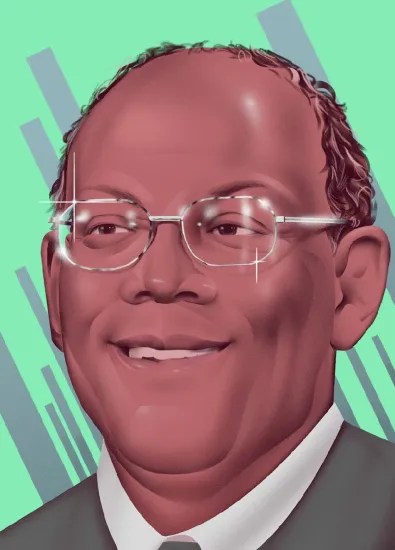John Rogers Is Winning

Illustration by Richard A. Chance
The Ariel Investments co-CEO has triumphed in the boardroom and on the basketball court. Now he says value investing’s comeback is just beginning.
John Rogers
Chicago
Pete Carril
Ariel Investments
Michael Jordan

